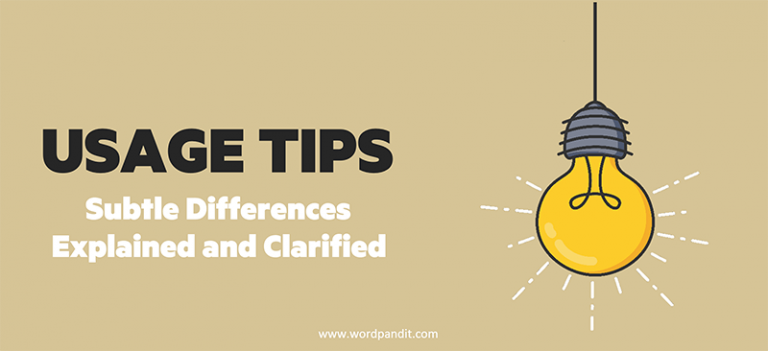Adverse vs. Averse: Clearing Up the Confusion ✨📚
Have you ever wondered whether to use adverse or averse in a sentence? 🤔 You’re not alone! These two words sound similar, and their meanings often overlap enough to cause confusion. Whether it’s an adverse reaction 🚫💊 or being averse to change ⛔🔄, knowing when to use which can save you from those awkward grammar mishaps. Let’s break it down so you never mix them up again. 💡
Not only do these words sound alike, but they also come up in similar contexts, which makes them easy to confuse. 😵💫 However, understanding the subtle differences between them will help you communicate more effectively 🗣️ and avoid common mistakes. Let’s dive deeper and clarify how each word should be used. 🔍✍️
Adverse vs. Averse: What Do They Mean? 🤓
Adverse (ad-vərs) 💨
- Definition: Unfavorable, harmful, or preventing success. It often describes a situation or condition that is against your interests or is challenging in some way. 😣
- Example: The storm caused adverse conditions for sailing. 🌧️⛵
- Etymology: Adverse comes from the Latin word adversus, meaning “against” or “opposing.” ⚔️ This origin helps explain why it is often used in situations that are against someone or something.
- Synonyms: Unfavorable ❌, detrimental ⚠️, disadvantageous 📉, hostile 👿.
- Antonyms: Favorable ✅, advantageous 💰, beneficial 🌱, supportive 🤝.
Averse (uh-vurs) 🤷♂️
- Definition: Having a strong dislike or opposition to something. It usually describes a person’s feelings or attitude towards something they don’t want to do or be involved with. 😒
- Example: She is averse to speaking in public. 🎤😨
- Etymology: Averse is derived from the Latin aversus, meaning “turned away.” 🔄 This origin reflects the idea of turning away from something you dislike.
- Synonyms: Opposed 🚫, reluctant 😬, disinclined 😑, unwilling 🙅♂️.
- Antonyms: Eager 🤩, enthusiastic 🎊, willing 👍, inclined 📈.
A Quick Way to Remember the Difference 🧠💡
Here’s a mnemonic to help: think of adverse as “against the environment” (adverse weather 🌩️), and averse as “against a feeling” (averse to doing something 😒). If it’s an external condition, go with adverse. If it’s a personal preference, use averse.
Another way to remember is to associate adverse with adversity 💥, which also means hardship or difficulty. On the other hand, think of averse in relation to aversion 🙅, which indicates a strong dislike. This connection can help you quickly determine which word to use based on context. 🔄📝
Contextual Examples to Clear the Fog 🌫️✨
- Adverse: The doctor warned that smoking 🚬 could have adverse effects on health. 🚫❌ This means that smoking could cause harmful or unfavorable outcomes.
- Averse: Mark is averse to working overtime on weekends. 🗓️⛔ This indicates that Mark has a strong personal dislike or reluctance towards working extra hours.
Want a sentence with both? Here it is: “She faced adverse circumstances at work 🏢, but she was averse to giving up.” 💪 Notice how adverse talks about the tough conditions, while averse reflects her personal feeling.
Another example: “The hikers 🥾 encountered adverse weather conditions 🌪️, but none of them were averse to continuing the journey.” 🏞️ Here, adverse refers to the challenging weather, while averse indicates the hikers’ attitude.
Common Mistakes to Avoid 🚫❌
Many people mistakenly say “I’m adverse to…” instead of “I’m averse to…” 😵. Remember, if you’re talking about something you personally don’t like, it’s averse. You could face adverse weather 🌧️, but you’d be averse to getting wet. 🌀💦
A good way to avoid this mistake is to remember that adverse is generally used for situations or external conditions 🌍, whereas averse relates to personal feelings or attitudes ❤️. When in doubt, think about whether you’re describing an event or a feeling—this can guide you to the correct word. 🤔📝
Related Confusing Pairs 🔄🔡
If you’re interested in more tricky pairs, check out words like affect vs. effect ⚖️, elicit vs. illicit 🚨, or stationary vs. stationery 🖊️📄. Expanding your vocabulary while knowing how to use each word correctly can make your communication clearer 🗣️ and more precise 🎯. Each of these word pairs has its own nuances, just like adverse and averse, and mastering them can significantly enhance your writing skills. 🖊️📖
Wrap-Up 🎉✅
You’ve just tackled a classic grammar hurdle! 🏆 Adverse means harmful or challenging, while averse describes your opposition or dislike for something. With a bit of practice, these words will start making sense naturally—no more mixing them up! 💪💡
The key to mastering these words is to use them in your daily conversations 🗣️ or writing ✍️. The more you practice, the more intuitive their meanings will become. Don’t be averse to learning—embrace these challenges 🚀, and you’ll conquer confusing word pairs like a pro! 📝✨
Test Your Knowledge: Adverse vs. Averse
1. The bad weather had an ___ impact on the event. 🌧️
2. Which of the following sentences uses “Averse” correctly?
3. Choose the correct synonym for “Adverse.” 💢
4. True or False: “Averse” can describe unfavorable weather conditions. ❌
5. What is the correct antonym of “Adverse”? 🌈
6. She is ___ to taking unnecessary risks. ⚠️
7. Which word fits the sentence: “The medication had an ___ effect on the patient.” 💊
8. The hikers were ___ to turning back, even though they faced ___ weather conditions. 🥾🌪️
9. Which of the following is true about “Averse”? ❔
10. Identify the incorrect usage of “Adverse.” 🚫











